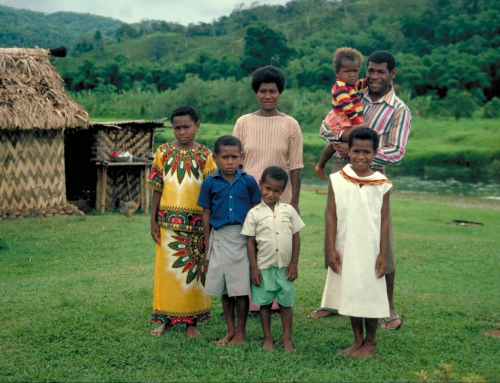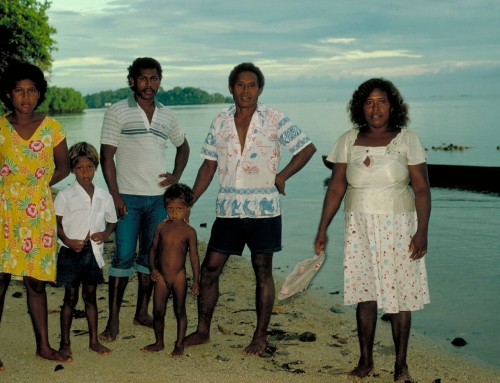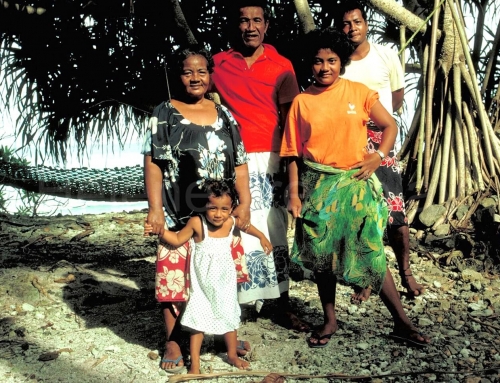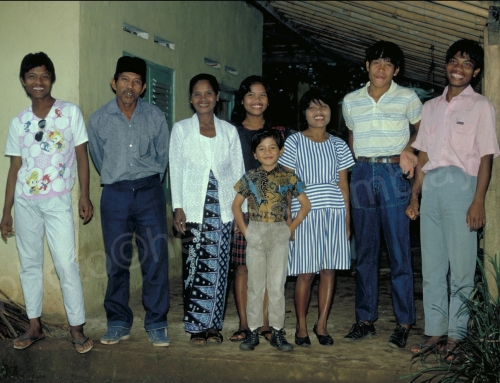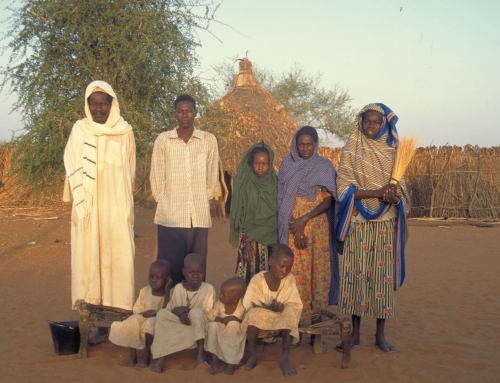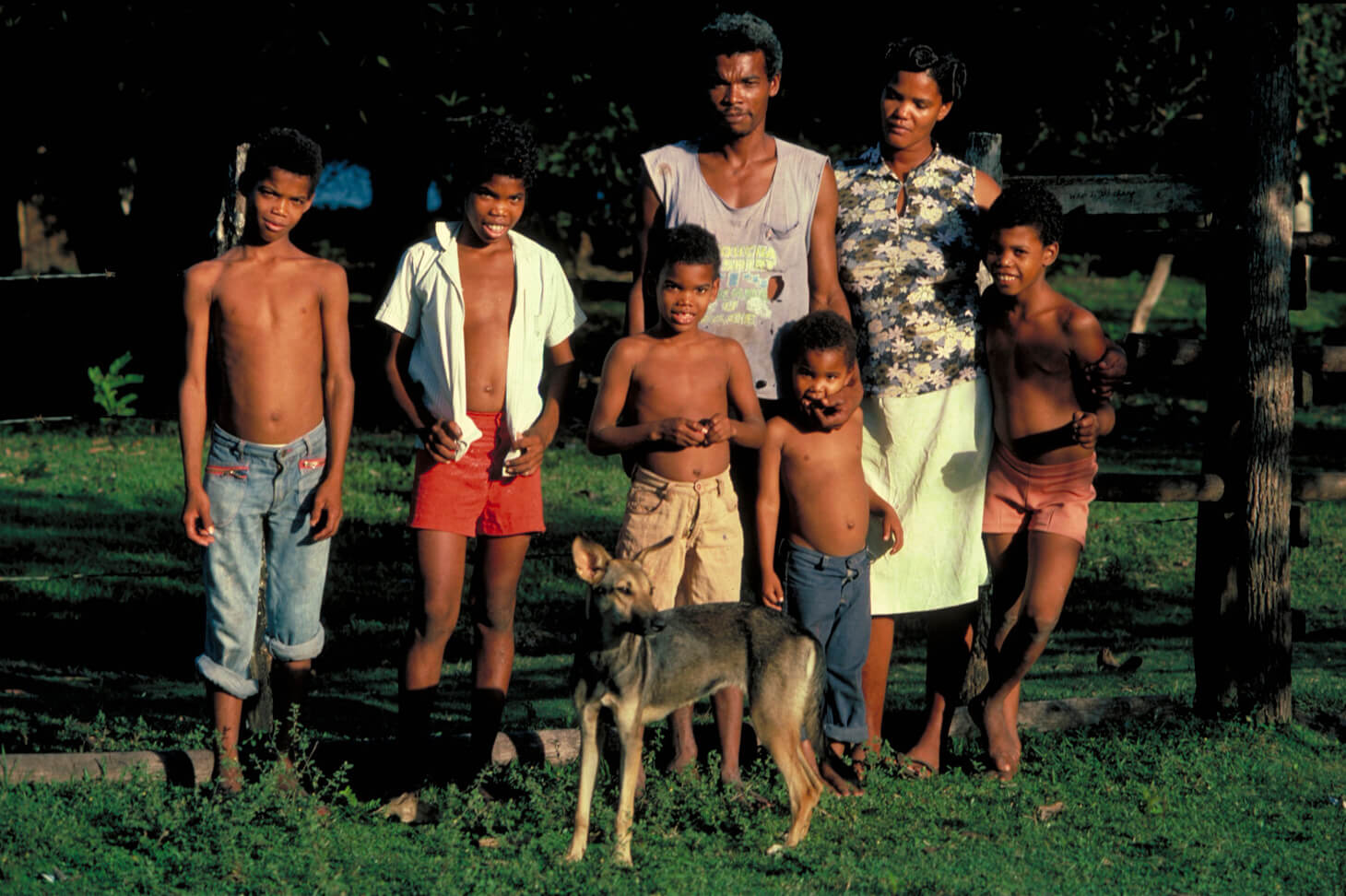
THE WADE FAMILY
Wilson Dery Wade (Parks), age 36
Leone Margaret Flowers (Maggy), 30
Curtis Antony Wade, 14
Erwin Ernesto (Winy), 12
Wilson Leroy (Didi), 11
Oscar Alexander, 10
Allan James, 4
11 chickens and turkeys
2 ducks
3 pigs
3 dogs
2 horses
Crooked Tree
December 6
Their great dream is a real house
5:00 At cockcrow, Wilson Dery Wade, otherwise known as Parks, leaves the only room in his tiny house. The whole family sleeps there together; four-year-old Allan with his mother and father and the four other boys head to foot in two curtained-off bunk beds.
Maggy follows her husband into the kitchen, another little thatched-roof cottage. On his way to work, Parks will nibble on Maggy’s homemade rolls. He jumps into his boat to cross the swampy lake that separates the village of Crooked Tree from the main road, taking his rifle with him in case he sees some game on the way. When he gets to the road, a fellow worker will pick him up and drive him to his employer’s land.
The Wades have lived on their little piece of property for thirteen years. They tore down the dilapidated old shack that was there before and used the materials to build the two huts. Their great dream is a real house made out of cinder blocks that will never need any repair, but that will have to wait until the fruit trees show a profit.
For a few dollars, Parks rents twenty acres of land from the government, with stands of pine, oak, and cashew. Among the plants he has added are citrus trees, Areca palms, and coconut palms. At present, only the sale of wood and cashew nuts brings in money, so Parks works as a farm labourer.
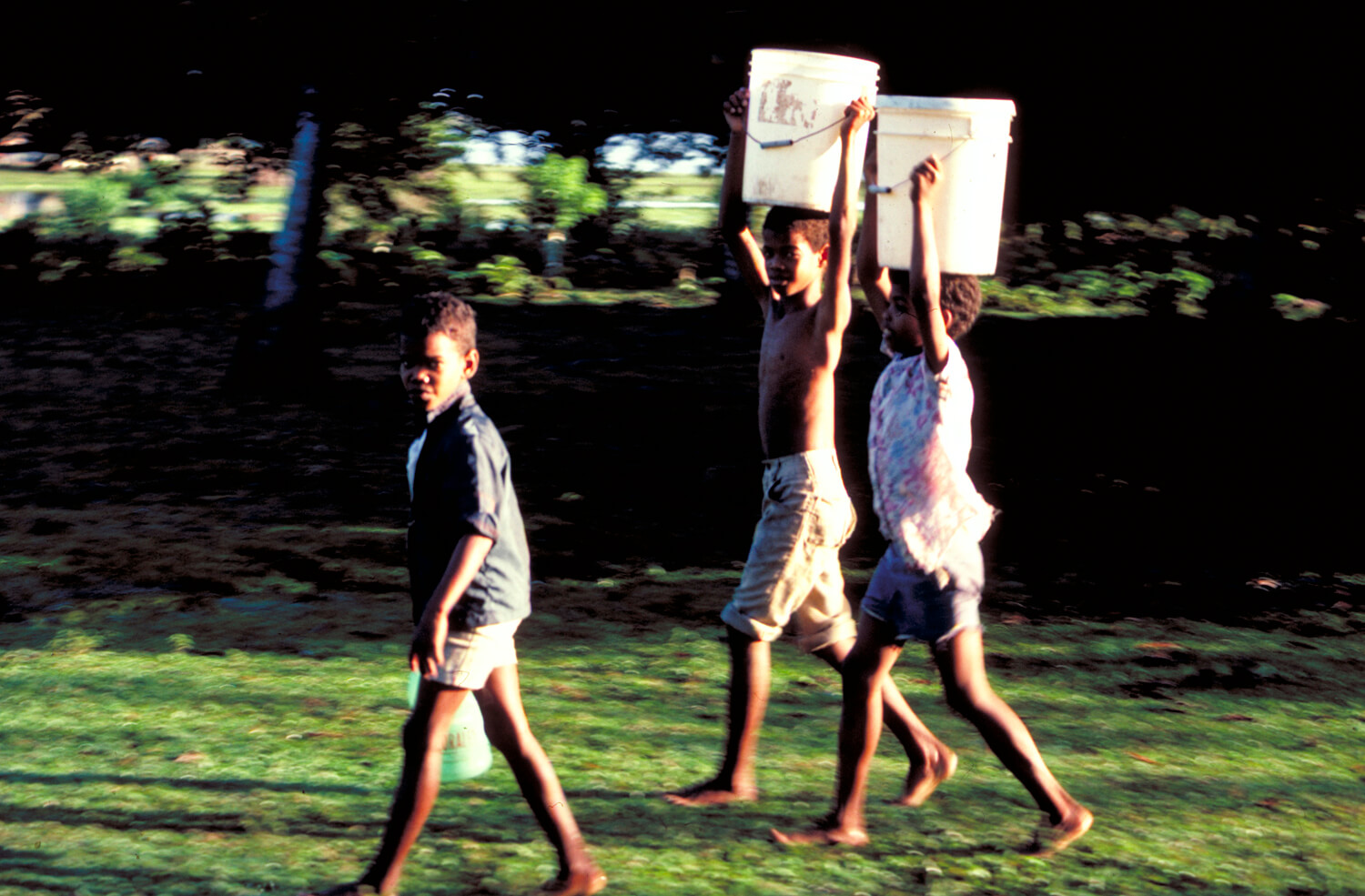
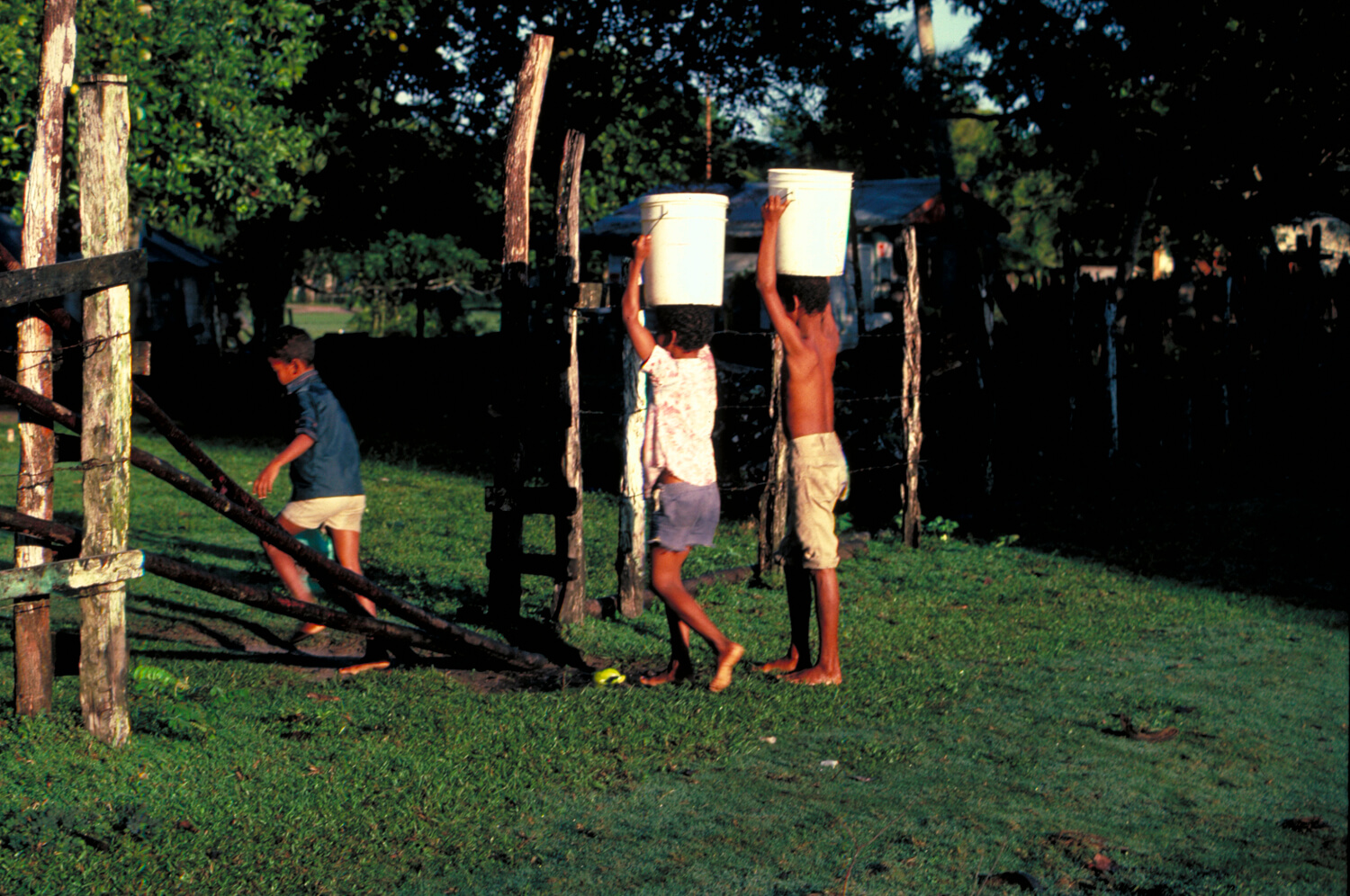
“Eh, man!”
6:00 Back in bed, snuggling with her last youngster, Maggy calls to the other boys. They all shuffle sleepily outside and collapse on a bench under the shade of an oak. Their mother allows them these few minutes to rest before setting about their chores. The boys are well disciplined, and their mother has a carefully worked-out schedule for them. Maggy only has to say “Eh, man” in her firm, lilting voice and all her children spring to attention. She gets to stay in bed while her sons perform their jobs. Curtis, the oldest, cuts the wood and lights the fire; Didi and Winy make three trips to the public fountain, returning each time with a twenty-liter bucket on their heads. Oscar meanwhile sweeps the sandy soil around the house clean of animal droppings and sprinkles ashes down the pit toilet at the bottom of the garden.
“You can get up now, Mum”
6:45 “You can get up now, Mum.” The house is clean, and powdered chocolate and water is boiling on the wood fire. Maggy doesn’t use the gas stove because butane is too expensive. She serves the breakfast of bread and chocolate on the table, while Winy washes yesterday’s dishes in a bucket and puts them out on a board to dry.
The bamboo walls of the cottage are papered with newspaper and pages from American fan magazines-a constant reminder of the American dream to which most Belizians aspire.
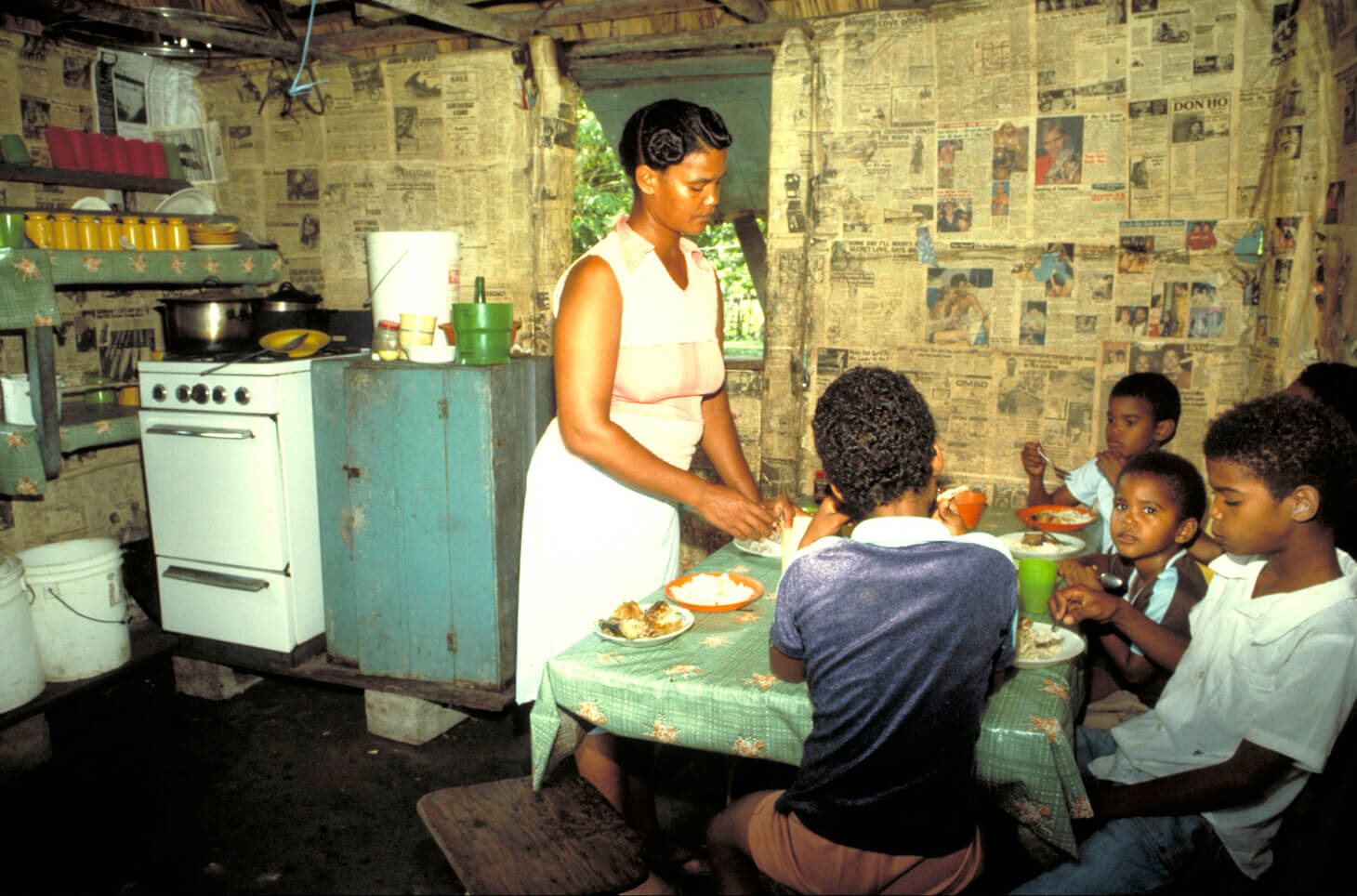
Fortunately, going barefoot to school is allowed.
Maggy scolds her boys as they dawdle while getting dressed for school. The boys have grown up half naked, and wearing a shirt is torture. For school, however, it’s compulsory. Fortunately, going barefoot is allowed. The Wade boys are a bit like their father, preferring sports and games to studying. They hurry down the sandy lane that snakes between the scattered houses of Crooked Tree. Maggy owns neither a watch nor a radio and relies on the sun’s position for time. This morning she was a little off. School is a large wooden room in which the classes are separated by screens.
There are fewer and fewer children in the classes: the effects of slow population growth and a wave of emigration to the city and abroad are beginning to make themselves felt.
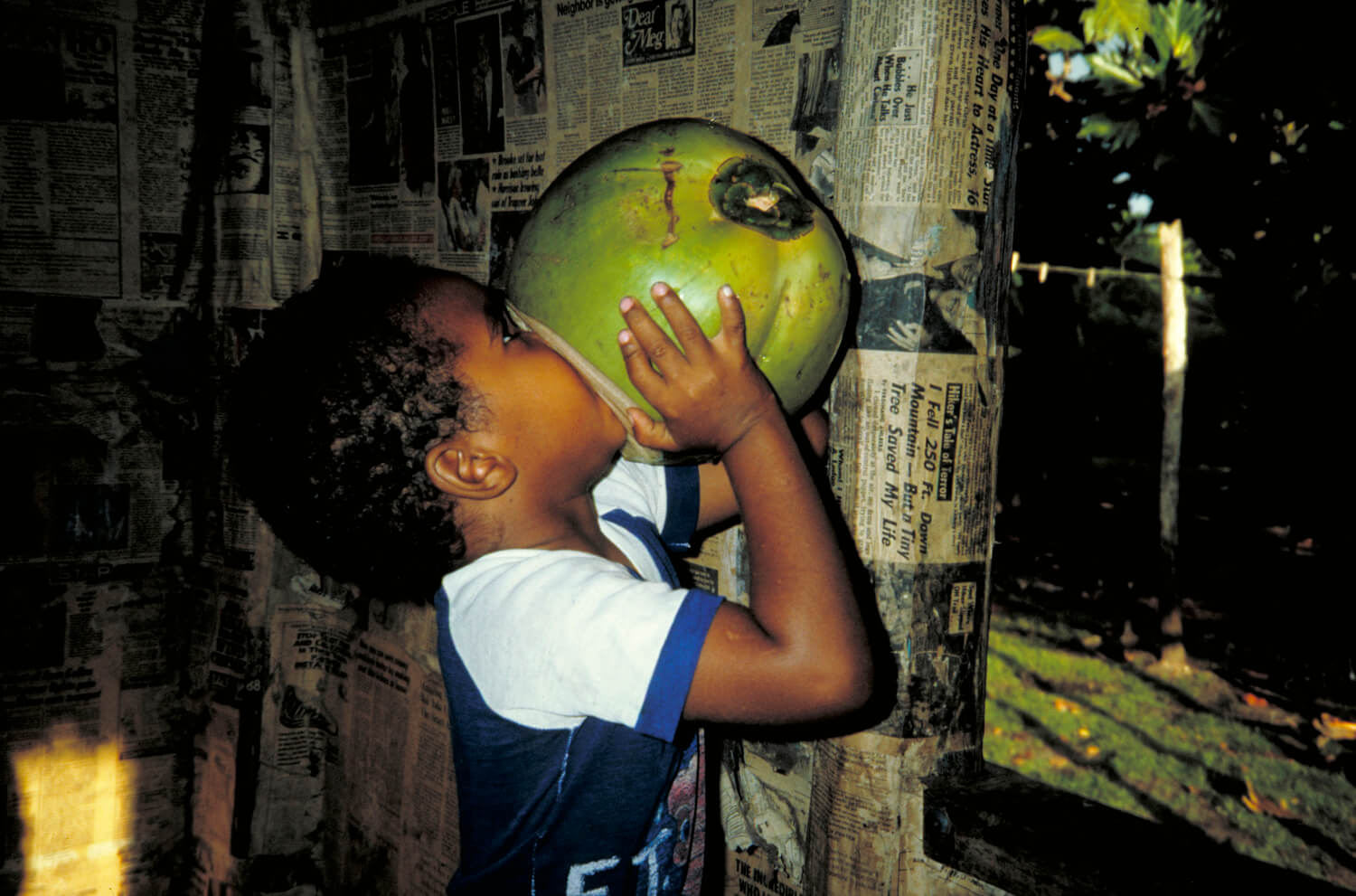
They will seek their fortune in the big world
Alone, Maggy enjoys the peace and quiet. She often goes fishing in the morning, but today she is doing the laundry under the shade of a tree. She scrubs the ground-in dirt from her sons’ pants on a washboard and puts the linens to soak in a basin. Then she goes off to cook some fish for the dogs. That and oranges are their favourite food.
Some young men from the village pass by, pick a piece of fruit, chat for a while, and go down to the water’s edge. There is no work in Crooked Tree and not much in Belize City. They would like to obtain visas to rejoin their families, who are already in the United States, but America’s doors are getting harder and harder to open.
Maggy’s sons never miss an opportunity to remind her that they don’t intend to stay here when they grow up, but rather will seek their fortune in the big world. Maggy is slowly getting used to the idea of their departure.
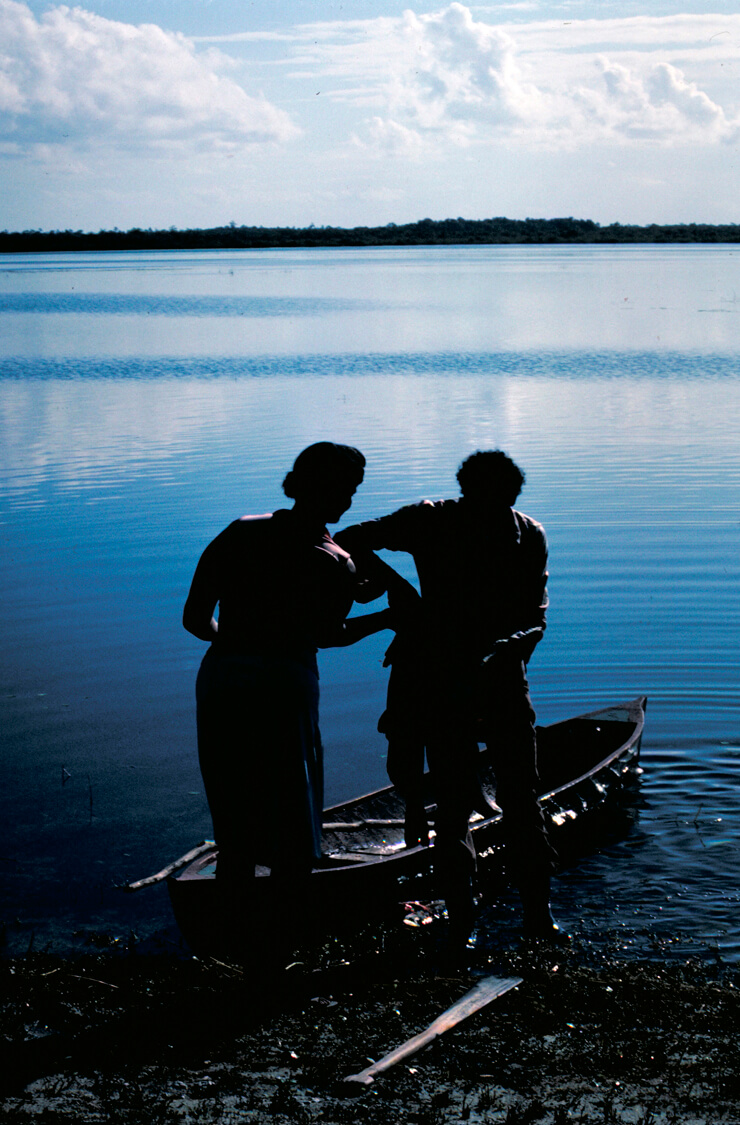
“I’d liked to have eleven children”
9:00 Little Allan has sneaked back home from kindergarten, where he has been registered since the beginning of the year. He hates being parted from his mother and knows what to say and do to get his way. “If I were the mummy and you were the baby,” he says, “I’d let you stay home.” Maggy inevitably capitulates. She adores children and would have liked to have eleven, like her mother. But the times are too hard for that. ‘There’s no question of a sixth child,” she says. “The house is so small, there’s not even room for a doll.”
12:00 The schoolboys eat a frugal lunch-a big bowl of watered-down coffee enriched with evaporated milk, a portion of fish, and two rolls. Before they return to school, they fetch lake water for their mother so she can rinse the laundry.
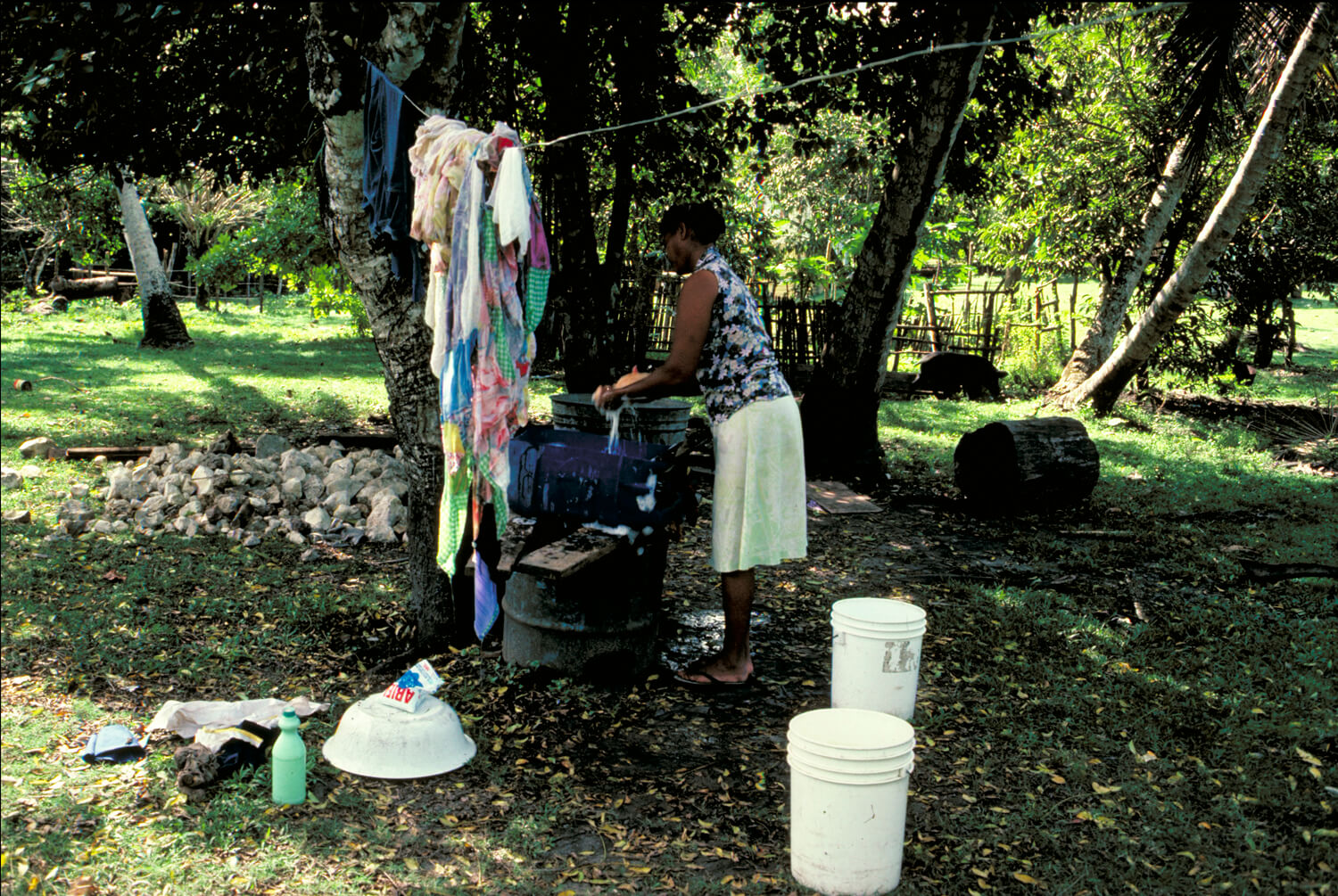
She reads Harlequin romances
2:00 Maggy’s day continues serenely. She likes to go back to bed in the afternoon, not to sleep, but to read. She has a large collection of used Harlequin romances, and when her neighbours go into town, she asks them to bring back more of them. The lovers in today’s book take her to Egypt. “It’s my way of escaping and traveling a little,” she says. Allan snuggles up to his mother, and before he falls asleep, whispers, “Let me bite your lips first.”
4:00 Maggy doesn’t put her book down until she hears the children’s voices in the lane. It’s time to bake her daily batch of bread. Curtis puts big logs on the fire so that there will be a heaping bed of embers. Meanwhile his brothers bring down two coconuts. Maggy grates and presses the coconut meat to extract the milk. She mixes the flour, fat, and coconut milk in a large plastic bowl. She has a skillful touch: in less time than it takes to tell it, the dough is mixed and rolled into a ball. Now it just has to rise.
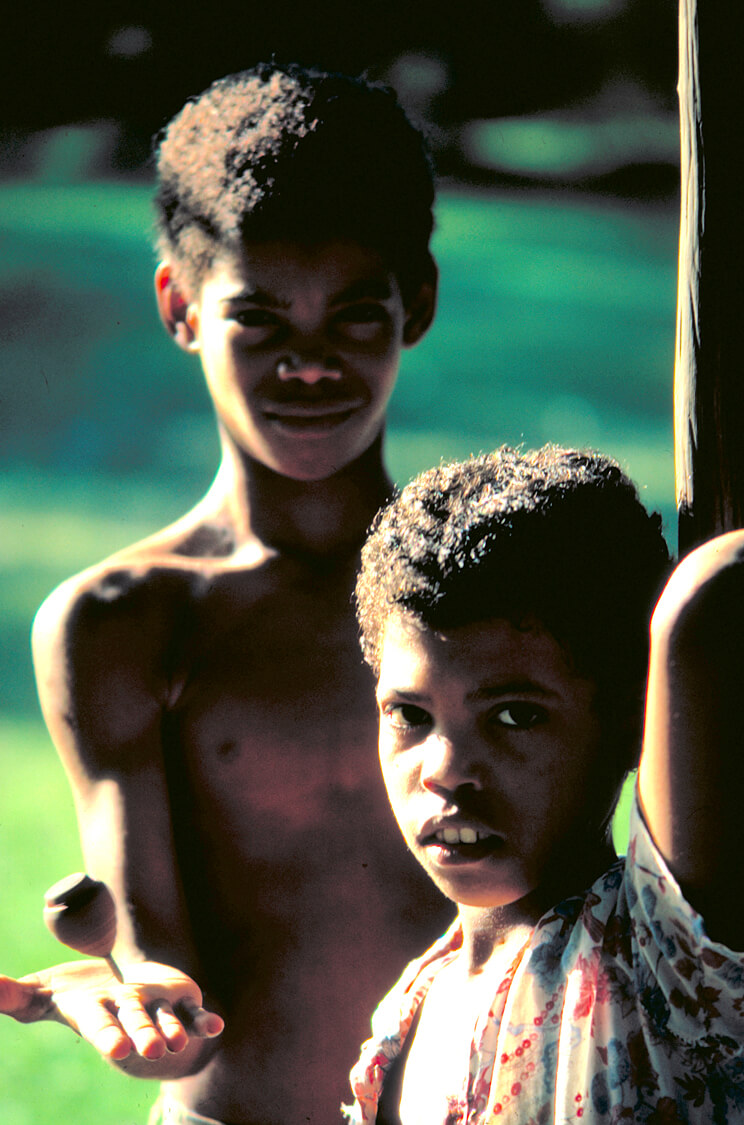
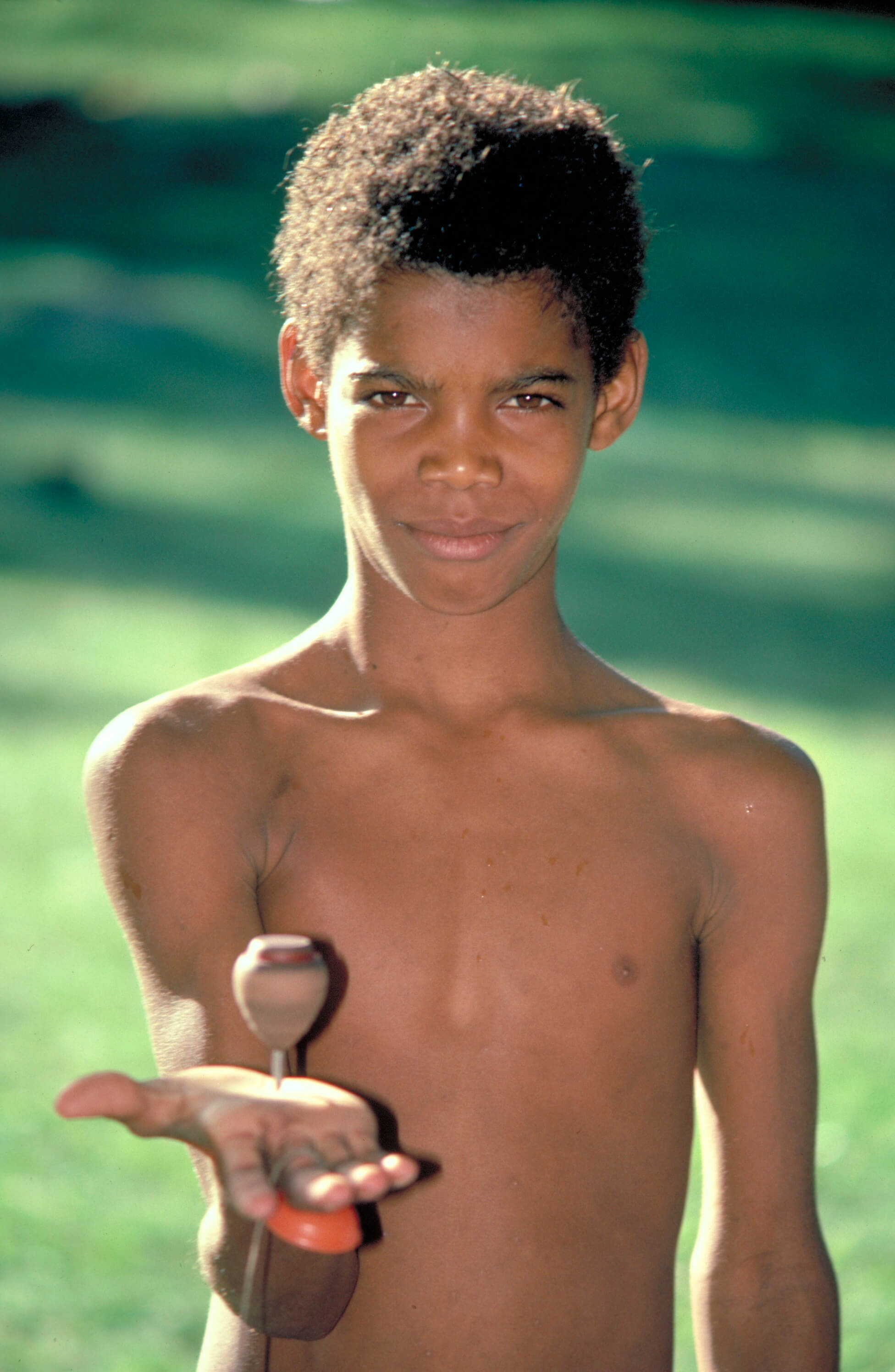
Maggy has invented an efficient oven
Didi feeds the rest of the grated coconut to the chickens, while Allan, armed with a stick, repels the pigs and dogs who try to steal it. Curtis, Winy, and their friends play soccer in front of the house. Parks arrives and sits down in the doorway, his rifle between his knees. He referees the soccer match, during which he is able to shoot two wild pigeons flying by.
5:00 The embers are as red as Maggy wants them, and she goes to work under the shade of a palm tree. She flattens the dough and shapes it into rolls which she places on the bottom of a large iron pot. She covers the pot with an earthenware dish filled with a layer of coals. In her own way, Maggy has invented an efficient oven. The rolls are crusty and golden.
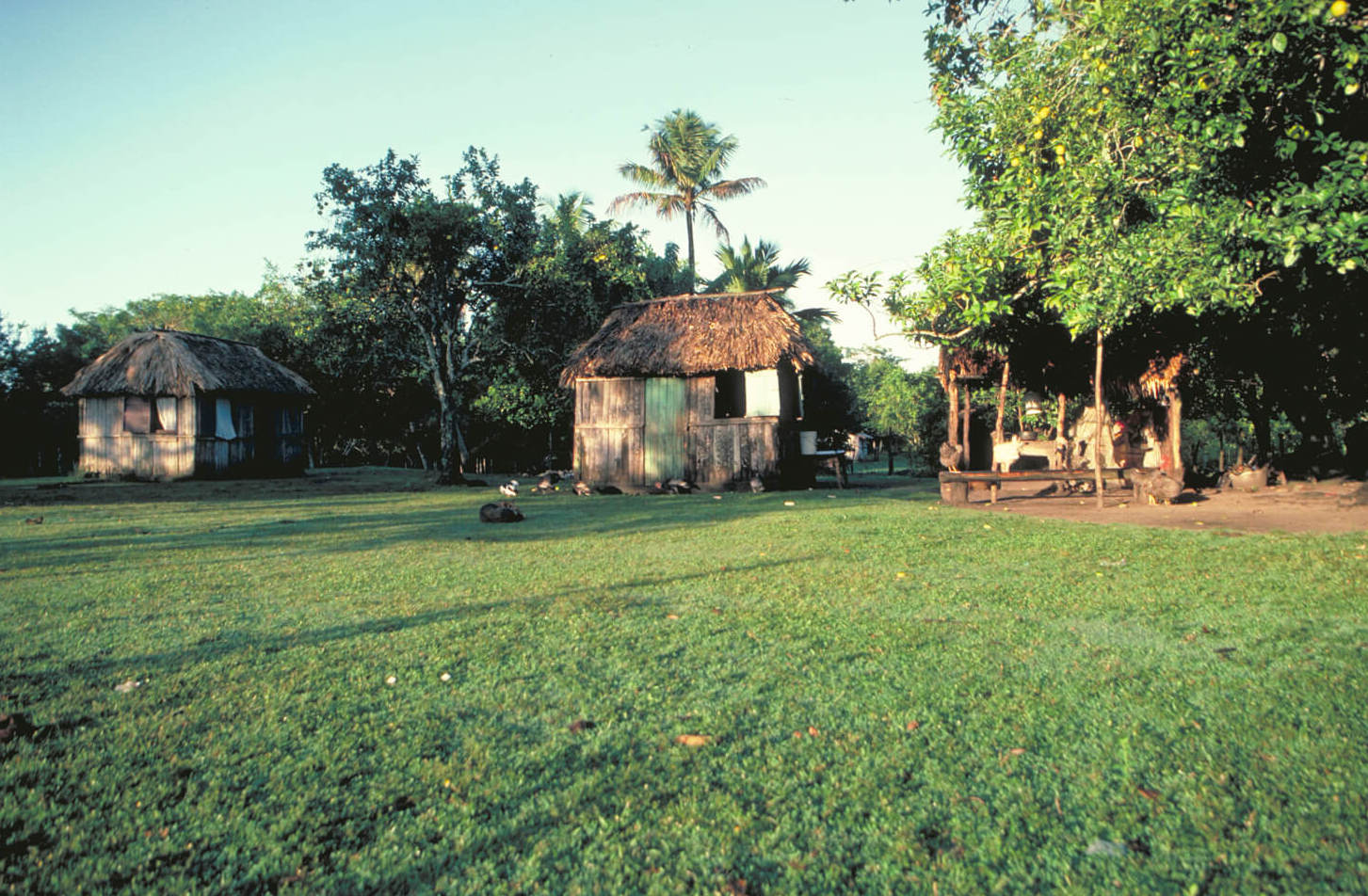
They saunter off in the moonlight
5:30 At dusk, thousands of fireflies swarm around the house. In the kitchen, father and sons wait impatiently for Maggy to serve them the wild pigeons and the delicious new bread.
7:00 Maggy and Parks put the children to bed. Then they saunter off in the moonlight to watch television at a neighbour’s. Crooked Tree has no electricity, but this television runs off a battery. It comes, of course, from the United States, a present from friends who were able to emigrate, and is such a rarity that this evening there are thirty people gathered in front of it. With fresh eyes they watch a very old soap opera which has seen better days.

